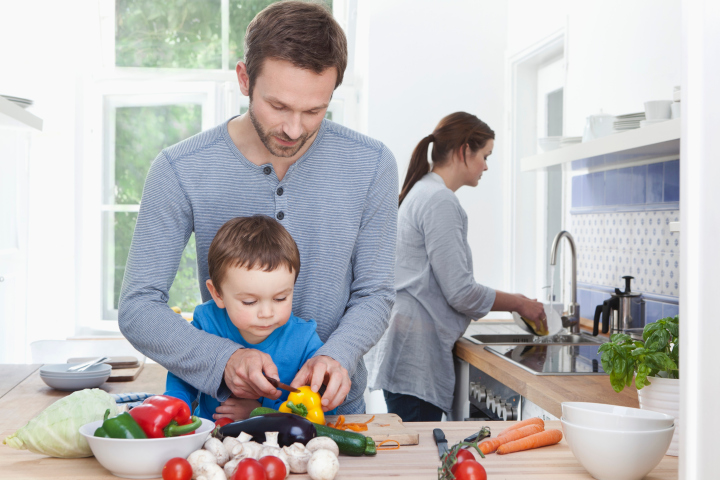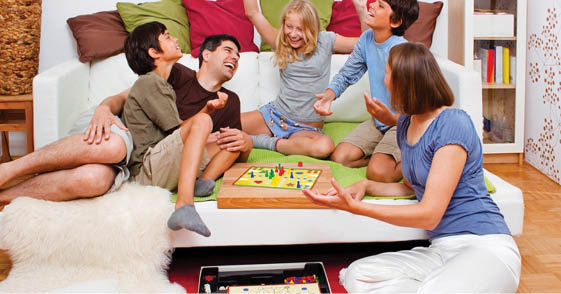Aviva Damania is a Psychologist – Mental Health Specialist, trained at City University of London (MSc Mental Health). She began counseling in 2014 as a Volunteer Counsellor at Charities in Mumbai, and has practiced at Masina Hospital. Having worked with adults, adolescents and children, Aviva’s primary areas of expertise include dealing with Depression, Anxiety, Anger, Stress amongst other issues. She currently shares her expertise at Pittie Group as Sr. Manager – Workplace and Employee Wellness. Parsi Times is delighted to welcome on board, the young, dynamic and proficient Aviva Damania, who will share significant symptoms, solutions and insights into numerous concerns which affect our mental wellbeing. Aviva is available for professional counseling on chat, phone and video call. You can connect with her at: avivadamania18@gmail.com
Why Family Conflicts Are On The Rise….
The lockdown, as a result of the Pandemic, has crossed the 40-day-mark of being home-bound with family… good enough time for the possibility of family conflicts! Even the closest-knit families could be in for a challenging time. There’s bound to be changes in interpersonal relationships as well as changes in how home-space is used, as compared to the past. The home is now a workplace, a school and a college! Having the whole family at home makes it hard to manage one’s personal space, making you more irritable and on edge, during this period. This could, many times, lead to disputes.
However, there are ways in which we could get together and collectively resolve the issue by coming to a mutual understanding and respecting each other’s views or preferences, by agreeing to disagree and looking at alternate methods of resolution. For the better part, the following tips have really worked out well:
How Can We Can Ease This Issue…
However, there are ways in which we could get together and collectively resolve the issue by coming to a mutual understanding and respecting each other’s views or preferences, by agreeing to disagree and looking at alternate methods of resolution. For the better part, the following tips have really worked out well:
- Divide The Household Work: The whole family at home, equals increase in household work, which in the average home is borne by the women, for the most part, especially mothers. This can be time consuming and frustrating, especially with no domestic help. It’s important for all family members to understand this and judiciously divide the household work to fit schedules. Reducing the load of one person can prevent arguments and conflict. To all the men who haven’t been helping out with the chores, it’s time to man up! Make your own Akuri this morning, and make some for the rest too!
- Manage your Space And Time: Homes may seem smaller than usual, as a consequence of confinement, making it harder to have privacy and personal space. This can get overwhelming, but scheduling how to use the home in a way that house-space is shared, helps greatly. Negotiating boundaries can help create a non-invasive ambience with clear distinction between family time, work time and alone time. Find fun interactive activities to do together as a family, such as board games, looking at old photographs or talk about happy memories together and plan similar things that brought you joy. Ensure that besides getting good sleep, nutrition and some physical activity you also designate some ‘me- time’ to indulge in self-care. You need to look after your wellbeing in order to care for someone else – you cannot pour from an empty cup! Focus on things that make you feel good. Find your ‘Reset’ button and use it to recuperate! Try yoga, cooking, reading or writing!
Dealing With Conflict: During these critical times, it’s imperative for family members to be empathetic, patient and understanding. While optimistic thinking is important, it must be realistic too. Reign in unrealistic expectations to avoid disappointment and dissatisfaction. Don’t expect your food to taste like Tanaz Godiwala’s lagan-nu-patru! Expectations must be in line with current resources. Since there is no escape from being around family, before a potential argument ask yourself if what you’re going to address is important, helpful and is there a solution at the moment. If not, is it really worth addressing? Try engaging in discussions that are neutral and not provocative.

However, since conflict is not fully avoidable, here are some of the things you can do that might help douse the fire… Resolve todays conflict today and drop the past. Don’t bring up an old argument from before the lockdown. Focus on here and now. The lockdown may drive people to react in ways they wouldn’t before, don’t be quick to react. Don’t play the blame game; give yourself time to process, empathise and react in a way that doesn’t fuel an argument. When things get heated, it sometimes helps to take a break – just ensure you don’t spend the break ruminating about the dispute! Did you know, as per findings, a 20-minute break during a marital tiff helped bring heart rates back down to baseline levels?
Communicate: During these unprecedented times, we must avoid conflict rather than focus on resolving conflict. One must give the benefit of the doubt, give each other the liberty to cope in their own way, with little or no judgement. In most cases, family conflicts are resolved with just effective communication.

Communicate your expectations and come to a mutually agreed upon mid-point. Explain your wants in the form of requests and not in the form of demands. Disclose needs rather than criticise. Use positive words of reinforcement when there is a display of desired behaviour. This will increase the likelihood that it is repeated. Using statements such as, “I am upset because of this” is more effective to deescalate an argument rather than statements such as “You did this to upset me,” which would only evoke a defensive response. Communication is a two-way street. Don’t assume that the other person is experiencing things the same way you are. Don’t just hear, listen. Make an attempt to understand and make adjustments with other members.
If this is not helpful to resolve conflicts, then make a conscious effort to give each other space but acknowledge that the conflict exists, and that members have opposing views at the moment but you don’t have the resources to move forward. Be sure to also stay virtually connected with people outside your home who are good for your mental health.
When To Seek External Intervention: If you notice that there’s a severe change in the dynamics of your home, where living together is miserable, with escalating risk and no respite, act early and get support. Seek counselling services, which are available online.
- Let’s Pledge To Positivity This Navroz! - 15 August2020
- Employee Mental Health during coronavirus (COVID-19) - 1 August2020
- Psychological Perspective: The ‘Bois Locker Room’ - 16 May2020
